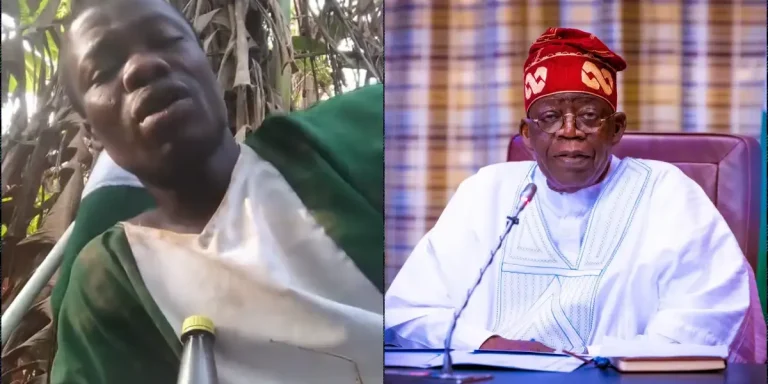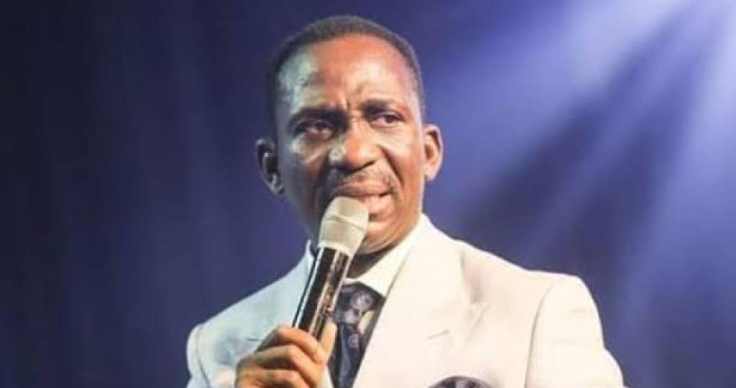News
Minimum wage: FG set up 16-man c’ttee on consequential adjustments in salaries

By Kayode Sanni-Arewa
The federal government on Friday sets up a 16-member consequential adjustments in salaries arising from provisions of the National Minimum Wage Act, 2024, of N70,000, approved by President Bola Tinubu.
The Chairman of the committee and Head of the Civil Service of the Federation (HCSF), Mrs. Didi Walson-Jack, inaugurated the committee on behalf of President Tinubu.
Daily Trust reports that President Tinubu on July 18 this year approved the minimum wage for federal workers from N30,000 to N70,000.
Walson-Jack said the President’s Renewed Hope Agenda is a covenant between his government and Nigerians, aimed at lifting citizens out of poverty and creating an enabling environment for prosperity.
“In this regard, President Bola Tinubu, graciously increased the national minimum wage from N30,000 to N70,000 with an assurance that it would be reviewed after three years, instead of the statutory five years through the Minimum Wage Amendment Act.
“This singular act, is aimed at enhancing the economic wellbeing of the working populace of Nigeria, in view of current economic realities. It is expected that this increase, will improve workers commitment to their jobs and in turn, increase productivity,” she said.
The HCSF said that the consequential adjustment in salaries is imperative in order to maintain a fair and equitable salary structure for Federal Civil Servants as a result of the minimum wage now fixed at N70,000 representing 133.33% increase from the previous minimum wage.
She said, “Consequently, there is a need to adjust the salaries of other categories of staff, taking into consideration the consequential effect of the new minimum wage.”
News
Man walking from Ibadan to Abuja to Meet Tinubu Stranded, Begs for Help

A young man known as Mr. Nigeria101, who embarked on an ambitious mission to trek from Ibadan to Abuja since December 1, 2024, has issued a heartfelt plea for assistance after becoming stranded.
His journey, which he described as a demonstration of loyalty to President Bola Ahmed Tinubu, is aimed at delivering a letter he claims represents the collective voices and concerns of Nigerian youths. Despite reportedly covering over 600 kilometers, his efforts have gone largely unnoticed by both the government and the public.
In a series of emotional videos shared on his TikTok account, Mr. Nigeria101 detailed his struggles and called on Nigerians for help. The videos, which have since garnered significant attention, reveal the extent of his frustration and exhaustion.
Speaking directly to the camera, he said:
“Nigerians, please come to my aid. I need your support. Have mercy on me. I have been on this trekking mission since December 1st last year from Ibadan to Abuja to meet Mr. President Bola Ahmed Tinubu to read out this message to him that Nigerians are suffering.
Nobody wants to attend to me; nobody wants to pay attention to me. I have trekked to the extent that my spirit has almost left my body.”
The young man’s plight has drawn mixed reactions, with some applauding his determination while others question the effectiveness of such actions in addressing Nigeria’s challenges.
Mr. Nigeria101’s journey has taken a more desperate turn as he vows to continue his trek to Abuja, even if it means wandering indefinitely or sacrificing his life. He has expressed his intention to protest until President Tinubu acknowledges his efforts and the message he carries on behalf of struggling Nigerians.
The contents of the letter, according to him, highlight the difficulties faced by ordinary citizens, particularly the youth, amid the prevailing economic hardships in the country.
Observers note that his actions reflect the growing frustration among young Nigerians, who often feel unheard and overlooked by those in power. Whether his efforts will result in an audience with the President remains uncertain, but his story has sparked conversations about the lengths citizens are willing to go to make their voices heard.A determined young man known as Mr. Nigeria101, who embarked on an ambitious mission to trek from Ibadan to Abuja since December 1, 2024, has issued a heartfelt plea for assistance after becoming stranded.
His journey, which he describes as a demonstration of loyalty to President Bola Ahmed Tinubu, is aimed at delivering a letter he claims represents the collective voices and concerns of Nigerian youths. Despite reportedly covering over 600 kilometers, his efforts have gone largely unnoticed by both the government and the public.
In a series of emotional videos shared on his TikTok account, Mr. Nigeria101 detailed his struggles and called on Nigerians for help. The videos, which have since garnered significant attention, reveal the extent of his frustration and exhaustion.
Speaking directly to the camera, he said:
“Nigerians, please come to my aid. I need your support. Have mercy on me. I have been on this trekking mission since December 1st last year from Ibadan to Abuja to meet Mr. President Bola Ahmed Tinubu to read out this message to him that Nigerians are suffering.
Nobody wants to attend to me; nobody wants to pay attention to me. I have trekked to the extent that my spirit has almost left my body.”
The young man’s plight has drawn mixed reactions, with some applauding his determination while others question the effectiveness of such actions in addressing Nigeria’s challenges.
Mr. Nigeria101’s journey has taken a more desperate turn as he vows to continue his trek to Abuja, even if it means wandering indefinitely or sacrificing his life. He has expressed his intention to protest until President Tinubu acknowledges his efforts and the message he carries on behalf of struggling Nigerians.
The contents of the letter, according to him, highlight the difficulties faced by ordinary citizens, particularly the youth, amid the prevailing economic hardships in the country.
Observers note that his actions reflect the growing frustration among young Nigerians, who often feel unheard and overlooked by those in power. Whether his efforts will result in an audience with the President remains uncertain, but his story has sparked conversations about the lengths citizens are willing to go to make their voices heard.
News
MEET Ibrahim Mahama’s footballer son who is set to join a club in Germany

By Kayode Sanni-Arewa
Amer Mahama, the son of business mogul Ibrahim Mahama, is an emerging talent reportedly set for a move to Europe after impressing in Ghana’s lower-tier league.
Amer is an attacking midfielder who plays for the lower-tier side Nice Ibrahim Sporting Club, based in Tema.
Known for his technical abilities, Amer is an exciting prospect with immense potential to become a top player.
Speaking to MO TV on YouTube, he confirmed drawing interest from an unnamed German club and stated he is set to join at the end of the current campaign.
“Hopefully, by the end of this campaign, I will go to Germany. Hopefully, I can make a name for myself,” he said.
The youngster also expressed his desire to represent Ghana, but indicated that his progress will determine.
“It depends on my progress. Yeah, maybe (I’ll play for Ghana).”
Amer Mahama’s strengths include his passing and vision, combined with his dribbling skills and ability to create chances.
News
Dunamis Healing Miracles Are Not Authentic -Former Pastor Alleges

Ex-Dunamis International Gospel Centre (DIGC) pastor, Abraham Daniel, has alleged that the miracles performed by the Senior Pastor, Paul Enenche, the church’s leader, are not genuine.
In an interview with Kaa Truths, Daniel disclosed his reasons for leaving the church, citing frustration over what he described as the church’s flawed approach to “healing and deliverance.”
He said after every healing and deliverance service, they often have more people seeking healing than those who initially attended for it.
He likened the atmosphere during the services to a high-pressure situation, comparing it to the chaos of a stadium crowd reacting to the presence of a dangerous animal.
“When people see the crowd, they do the unthinkable. It’s like hearing there’s a lion nearby; even a crippled might jump the fence,” he said.
He further explained that the massive crowds at Dunamis services often compel people to act out of desperation.
He said, “I would tell you that healing is capital no. And it is with due respect to him and to Dunamis Church, I have nothing to lose or gain. The miracles are not real, they don’t happen.
“Let let me tell you give you an instance. One major reason why I left is the frustration I had. After healing and deliverance service, we have more people that need healing than people that came for healing. I don’t know whether you got me.”
Abraham said, “The healing service, you see people still want to see daddy for prayer. People are frustrated. You could see frustration.
“And as a pastor, you know, because when daddy has gone, the Wahala now is left for us because they have to meet us. Oh, pastor, please, I need to see daddy. I brought this person. I brought that person. And people, oh, I’m like, ho? Where do I start from? Like, you could see pain.”
He said, “You see, let me tell you something. When you’re on the stage it’s different from reality.
“When you are in a crowded atmosphere charged with, you know, you know, disco light and bang bang bang or the music is slow, your emotion is being tapped into. It’s different ball game on when the lights are off and you have to face reality.”
He said, “There’s what I call environmental influence. For instance, if you are aware of BurnaBoy or Davido or Michael Jackson is doing event and, and, maybe you had malaria or, maybe headache.”
According to Abraham, “You could go away with the dance. You won’t even remember you had headache. But when everyone has gone, this thing dey disturb me. That is when reality comes.
“Or maybe you are in a stadium and they said a tiger is here. If you’re not careful, a crippled will jump the fence. A crippled will jump the fence. A tiger is here or a lion is here.
“People will do the what the unthinkable. Now that is what I call the environmental effect,” Abraham added.
Recall the latest update, that the Force Intelligence Department of the Nigerian police has released Alex Enenche, the younger brother of Pastor Paul Enenche, and Abraham Daniel, a former pastor at Dunamis Church, on bail.
Alex Enenche and Daniel were arrested and detained on January 7, 2025, but were released the following day (Wednesday) after an agreement was reached to resolve the matter amicably.
Alex Enenche and Abraham Daniel were instructed to report back to the Force Intelligence Department (FID) on Friday, January 10, 2025, and Monday, January 13, 2025.
SaharaReporters reported on Tuesday that FID had detained Daniel and Alexander Eneche, following their appearance at the department in response to a police invitation.
They were accused of cyberbullying and criminal defamation against Pastor Paul Enenche, the founder and Senior Pastor of Dunamis International Gospel Centre, Abuja.
This development came after Pastor Daniel publicly accused Pastor Enenche of reneging on a gentleman’s agreement between them.
Barrister Ernest Okpaga, the legal representative of the detained individuals, told SaharaReporters that his clients were detained after honouring the police invitation.
He explained that they arrived at the FID office at 1 pm on Tuesday, only to have their statements taken after hours of waiting, around 8 pm, and subsequently detained without explanation.
“No clear reason has been given for their detention, even though they cooperated fully with the police,” Okpaga stated.
In a previous report, SaharaReporters revealed that family members of Pastor Daniel and Alexander Eneche had expressed concerns about their whereabouts after they responded to a police invitation.
However, sources close to the matter later informed SaharaReporters that the two individuals were still in police custody, leaving their family members worried and uncertain about their fate.
Meanwhile, in the invitation letters sent to Daniel and Alexander Enenche, dated January 3, 2025, the Deputy Inspector General of Police, Force Intelligence Department (FID), Abuja, invited them to report to the department for questioning.
-

 News20 hours ago
News20 hours agoJust in: Ohanaeze Ndigbo Elects Factional President
-

 News22 hours ago
News22 hours agoPhotos: Senator Manu lights up Kurmi LGA in Taraba Central, installs 50 solar powered streetlights
-

 News20 hours ago
News20 hours agoMEET Silas Adekunle, world’s highest-paid robotics engineer
-

 News22 hours ago
News22 hours agoSAD! Former Speaker Dimeji Bankole, loses mother
-

 News20 hours ago
News20 hours agoRising star Amad Diallo signs new Man United contract
-

 News21 hours ago
News21 hours ago.US. govt returns $52.88m linked to former Nigerian minister
-

 Economy18 hours ago
Economy18 hours agoSEE Black Market Dollar To Naira Exchange Rate Today 10 January 2025 Can Be Accessed Below
-

 News20 hours ago
News20 hours agoBREAKING: Aguocha Obi Declares Julius Abure Labour Party National Chairman








